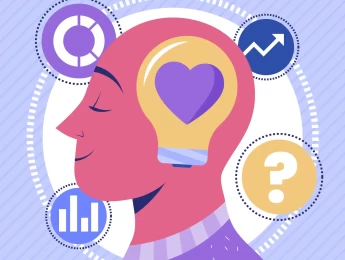Teaching is not just about delivering knowledge — it is about connecting with students, managing classroom dynamics, and creating an environment where learners feel safe, motivated, and engaged. Emotional Intelligence (EI) enables educators to understand and manage their own emotions and those of their students, fostering positive relationships and improving learning outcomes.
This course is designed specifically for educators who wish to develop their emotional intelligence to enhance their teaching practice and support student wellbeing. Participants will learn how to create emotionally inclusive classrooms, respond effectively to students’ emotional needs, and model emotionally intelligent behaviour that inspires learners.
By the end of this course, participants will be able to:
- Understand the role and components of emotional intelligence in education.
- Reflect on their own emotional awareness and management as educators.
- Recognize and respond to students’ emotional and social needs.
- Foster empathy, resilience, and emotional skills in students.
- Build an emotionally safe and supportive classroom environment.
- Handle conflicts and challenging behaviours with emotional awareness and composure.
This course is ideal for:
- Primary and secondary school teachers.
- University and college lecturers.
- Special education teachers and support staff.
- School counsellors and wellbeing coordinators.
- School leaders and administrators seeking to support teacher and student wellbeing.
The course combines interactive lectures, reflective self-assessments, group discussions, role-play activities, classroom scenario analysis, and collaborative planning. Participants will engage in practical exercises tailored to real educational contexts.
Day 5 of each course is reserved for a Q&A session, which may occur off-site. For 10-day courses, this also applies to day 10
Section 1: Foundations of Emotional Intelligence in Education
- What is emotional intelligence? Why it matters for educators
- The five components of EI in the teaching context:
- Self-awareness
- Self-regulation
- Motivation
- Empathy
- Social skills
- The impact of teacher EI on student learning, behaviour, and engagement
- Workshop: assessing your own emotional intelligence as an educator
Section 2: Self-Awareness and Emotional Management for Teachers
- Recognizing emotional triggers in the classroom
- Techniques for managing stress, frustration, and emotional fatigue
- Strategies for maintaining emotional balance in challenging situations
- Reflective practice as a tool for emotional growth
- Workshop: creating a personal emotional regulation plan
Section 3: Understanding and Responding to Students’ Emotions
- How students experience and express emotions at different developmental stages
- Identifying signs of emotional distress and supporting vulnerable students
- Encouraging student voice and active participation
- Using empathy to strengthen teacher-student relationships
- Workshop: responding to common student emotional scenarios
Section 4: Creating Emotionally Safe and Inclusive Classrooms
- Building trust and psychological safety in the classroom
- Designing lessons and activities that promote connection and belonging
- Encouraging peer support and respectful interactions
- Handling bullying, exclusion, and conflict constructively
- Workshop: designing a classroom climate plan
Section 5: Modelling and Teaching Emotional Intelligence to Students
- How educators can model emotionally intelligent behaviour for learners
- Integrating EI skills into the curriculum and daily interactions
- Teaching students self-awareness, self-regulation, and empathy
- Strategies for fostering resilience and positive coping mechanisms in learners
- Final group activity: designing an EI-based lesson or program for your students
Upon successful completion of this training course, delegates will be awarded a Holistique Training Certificate of Completion. For those who attend and complete the online training course, a Holistique Training e-Certificate will be provided.
Holistique Training Certificates are accredited by the British Accreditation Council (BAC) and The CPD Certification Service (CPD), and are certified under ISO 9001, ISO 21001, and ISO 29993 standards.
CPD credits for this course are granted by our Certificates and will be reflected on the Holistique Training Certificate of Completion. In accordance with the standards of The CPD Certification Service, one CPD credit is awarded per hour of course attendance. A maximum of 50 CPD credits can be claimed for any single course we currently offer.
- Course Code IND08-109
- Course Format Classroom, Online,
- Duration 5 days













